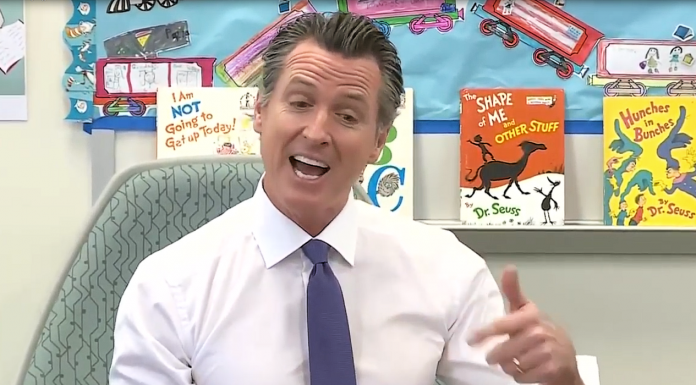(Headline USA) California Gov. Gavin Newsom may be counting on renters and landlords will turning up more than concerned taxpayers in the state’s upcoming recall election.
Newcom said California will pay off all the past-due rent that accumulated in the nation’s most populated state because of the fallout from the coronavirus pandemic, a promise to make landlords whole while giving renters a clean slate.
Left unsettled is whether California will continue to ban evictions for unpaid rent beyond June 30, a pandemic-related order that was meant to be temporary but is proving difficult to undo.
Federal eviction protections also are set to expire on June 30. California had passed its own protections that applied to more people.
Newsom and legislative leaders are meeting privately to decide what to do, part of the negotiations over the state’s roughly $260 billion operating budget.
An extension of the eviction ban seems likely to give California more time to spend all the money to cover unpaid rent. But landlords and tenants’ rights groups are arguing over how long that extension should last.
“The expectation for people to be up and at ’em and ready to pay rent on July 1 is wholeheartedly unfair,” said Kelli Lloyd, a 43-year-old single mother who says she has not worked consistently since the pandemic began in March 2020.
Lloyd said she recently lost a job at a real estate brokerage and hasn’t found another one yet. She’s worried she could be evicted if the protections expire.
“Simply because the state has opened back up doesn’t mean people have access to their jobs,” she said.
Meanwhile, in the wine country area of Sonoma County, property manager Keith Becker says 14 tenants are more than $100,000 behind in rent payments. It’s put financial pressure on the owners, who Becker says have “resigned themselves to it.”
But they have grown weary of the seemingly endless protections, which he noted were aimed at addressing a public health emergency and not meant to be permanent.
“We should do our best to get back to the starting point where we were in December of 2019. Anything other than that is taking advantage of a crisis,” he said.
California has $5.2 billion to pay off people’s rent, money from multiple aid packages approved by Congress. That appears to be more than enough to cover all of the unpaid rent in the state, according to Jason Elliott, senior counselor to Newsom on housing and homelessness.
But the state has been slow to distribute that money, and it’s unlikely it can spend it all by June 30. A report from the California Department Housing and Community Development showed that of the $490 million in requests for rental assistance through May 31, just $32 million has been paid. That doesn’t include the 12 cities and 10 counties that run their own rental assistance programs.
“It’s challenging to set up a new, big program overnight,” said Assemblyman David Chiu, a Democrat from San Francisco and chair of the Assembly Housing and Community Development Committee. “It has been challenging to educate millions of struggling tenants and landlords on what the law is.”
Landlords point to the state’s rapid economic recovery as a reason not to extend the eviction moratorium much longer. California has added 495,000 new jobs since February. In April alone, California accounted for 38% of all new jobs in the U.S. This week, Newsom lifted all restrictions on businesses, heralding it as the state’s grand reopening.
“We’re getting back to normal,” Carlton said. “It’s time to go back to work. It’s time to pay the rent.”
While employment among middle- and high-wage jobs has exceeded pre-pandemic levels, employment rates for people earning less than $27,000 a year are down more than 38% since January 2020, according to Opportunity Insights, an economic tracker based at Harvard University.
That may be largely by choice, as generous federal-subsidized unemployment benefits and lax standards have deterred low wage-earners from making a good-faith effort to pursue employment. And with no rent to pay in the immediate future, money from weekly welfare checks and stimulus payments has been spent or invested elsewhere.
“The stock market may be fine, we may be technically reopened, but people in low-wage jobs—which are disproportionately people of color—are not back yet,” said Madeline Howard, senior attorney for the Western Center on Law and Poverty.
Some housing advocates are asking the state to keep the eviction ban in place until the unemployment rate among low-wage workers has dropped to pre-pandemic levels—a metric unlikely to be reached until the government stops incentivizing joblessness.
Leftists, however, claim the logic is similar to how state officials would impose restrictions on businesses in counties where COVID-19 infection rates were higher while those with lower infection rates could reopen more quickly.
Advocates say they were encouraged when Newsom told Univision earlier this month that he “definitively” wants to extend the eviction protections beyond June 30.
“We’re cautiously optimistic,” said Francisco Duenas, executive director of Housing Now California. “We definitely need these protections as part of our recovery.”
Adapted from reporting by the Associated Press

